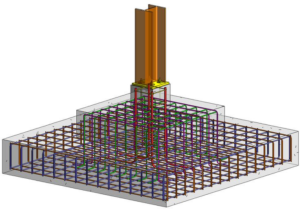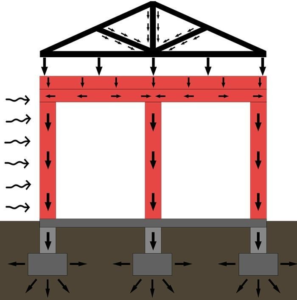Mastering the Basics: A Beginner’s Guide to Construction Management
Construction management is a multifaceted discipline that orchestrates the myriad aspects of building projects, from inception to completion. For those interested in mastering the basics of this field, understanding the fundamentals is crucial. This guide, titled ‘Mastering the Basics: A Beginner’s Guide to Construction Management,’ aims to provide a comprehensive introduction to the essential components of construction management.
Whether you’re an aspiring construction manager, an industry professional looking for a refresher, or simply someone intrigued by the complexities of construction projects, this guide will equip you with the knowledge you need to navigate this dynamic field.
From exploring the key roles and responsibilities of a construction manager to delving into the construction project lifecycle, this beginner’s guide is designed to demystify the intricacies of construction management and set you on a path toward proficiency and confidence in your construction endeavors.

Key Takeaways
- Construction management involves planning, executing, and overseeing construction projects.
- Construction managers play critical roles in ensuring projects are completed on time and within budget.
- Understanding the construction project lifecycle is essential for effective project management.
- Essential skills include communication, problem-solving, and leadership in construction management.
- Modern tools and technologies can significantly enhance efficiency and accountability in construction projects.
1. Introduction to Construction Management
Construction management plays a critical role in the successful execution of any building project. For those just entering this dynamic field, understanding the essentials is key. In our guide, ‘Mastering the Basics: A Beginner’s Guide to Construction Management,’ we delve into the fundamental principles that govern effective construction practices. This introductory section will cover the key responsibilities of a construction manager, such as project planning, resource allocation, and risk management. By grasping these basic concepts, beginners can build a solid foundation that will enhance their ability to oversee projects, collaborate with stakeholders, and ensure timely and within-budget completion. Whether you’re a novice aiming to break into the industry or a professional seeking to strengthen your foundational knowledge, this guide offers the insights necessary to navigate the complexities of construction management with confidence.
2. Key Roles and Responsibilities of a Construction Manager
To effectively grasp the concept of ‘Mastering the Basics: A Beginner’s Guide to Construction Management,’ it’s crucial to delve into the key roles and responsibilities of a construction manager. At the forefront, a construction manager acts as the linchpin between various stakeholders, including architects, engineers, clients, and subcontractors, ensuring seamless communication and collaboration. They are tasked with developing project plans that adhere to budgets and timelines, while also assessing project risks and implementing strategies to mitigate them. Furthermore, their oversight of daily operations means they must maintain quality control, ensuring that work meets safety standards and regulatory compliance. A construction manager also plays a pivotal role in resource management, from allocating labor to scheduling equipment use, thereby optimizing productivity. In essence, understanding these fundamental responsibilities is integral for anyone looking to explore the field through ‘Mastering the Basics: A Beginner’s Guide to Construction Management.’ This comprehensive knowledge not only enhances project execution but is also vital for career advancement in the construction industry.
‘The road to success is always under construction.’ – Lily Tomlin

3. Understanding the Construction Project Lifecycle
Understanding the construction project lifecycle is pivotal for anyone looking to enhance their knowledge in this field. Mastering the Basics: A Beginner’s Guide to Construction Management begins with a clear comprehension of the various phases that a construction project undergoes—from conceptualization to completion. The lifecycle can be broadly segmented into several key stages: initiation, planning, execution, monitoring, and closure. During the initiation phase, stakeholders define the project’s vision, scope, and feasibility. Following this, detailed planning is essential; this includes budgeting, scheduling, and resource allocation, which are critical components for keeping the project on track. Execution involves the actual construction work, where adherence to plans and safety regulations is paramount. As the project progresses, constant monitoring allows for adjustments to be made to mitigate risks or budget overruns. Finally, the closure phase ensures that all aspects of the project are wrapped up adequately, providing deliverables to the client and reflecting on lessons learned. By understanding each of these stages within the construction project lifecycle, beginners can better navigate the complexities of construction management and position themselves for success in this dynamic industry.
4. Essential Skills for Effective Construction Management
Mastering the Basics: A Beginner’s Guide to Construction Management involves understanding key skills that underpin effective construction management. To thrive in this dynamic field, project managers must cultivate a diverse skill set, starting with robust leadership capabilities. Effective leadership not only inspires teams to perform at their best, but also fosters collaboration across various trades and stakeholders. Additionally, strong communication skills are crucial; they ensure that all project participants—whether clients, subcontractors, or team members—are on the same page, minimizing misunderstandings and delays. Furthermore, proficiency in project management software and tools is essential; these digital resources help in scheduling, budgeting, and tracking progress, allowing managers to keep projects on time and within budget. Lastly, a solid understanding of construction safety regulations cannot be overlooked; prioritizing safety protects workers and reduces liability. By focusing on these essential skills, individuals can advance their careers while effectively overcoming the myriad challenges present in construction management.

5. Common Challenges in Construction Management and How to Overcome Them
In the realm of construction management, effectively mastering the basics is essential for both novice managers and seasoned professionals alike. One of the primary hurdles that newcomers often face is the complexity of project planning and scheduling. Without a clear timeline, projects can quickly go off track, leading to budget overruns and extended deadlines. To overcome this, utilizing project management software can greatly enhance organization and efficiency. Additionally, communication often presents a challenge; disparate teams may struggle to synchronize their efforts. Establishing regular check-ins and utilizing collaborative tools can ensure all stakeholders are on the same page. Finally, managing client expectations is crucial, as miscommunication can lead to dissatisfaction and conflicts. By embracing transparent dialogue and continually engaging with clients, construction managers can cultivate trust and mitigate misunderstandings. By recognizing and addressing these challenges, aspiring professionals can sharpen their skills and truly become proficient in mastering the basics of construction management.
6. Tools and Technologies for Modern Construction Management
In the ever-evolving world of construction management, mastering the basics is essential for professionals looking to streamline their processes and enhance project outcomes. With the advent of advanced tools and technologies, modern construction management has made significant strides, transforming how projects are planned, executed, and completed. From project management software like Procore and Buildertrend, which allows for real-time collaboration and communication among team members, to Building Information Modeling (BIM) that facilitates detailed visualization of construction projects before they commence, these innovations are indispensable. Additionally, incorporating drones for site surveying and monitoring, as well as mobile applications that enable on-the-go management, further exemplifies the thorough integration of technology in today’s construction landscape. Understanding these tools is crucial for anyone embarking on the journey of construction management, as they not only improve efficiency but also enhance safety and compliance across all stages of construction. By embracing these technological advancements, professionals can position themselves at the forefront of the industry, ready to tackle the challenges of modern construction with confidence and expertise.

7. Resources for Further Learning and Development in Construction Management
As you embark on your journey towards mastering the basics: a beginner’s guide to construction management, it’s crucial to leverage key resources that can enhance your understanding and skills in this dynamic field. There are numerous online platforms offering courses specifically tailored for newcomers, such as Coursera, edX, and Construction Management Association of America (CMAA), which provide valuable insights into project management, safety regulations, and budgeting essentials. Additionally, consider investing in well-reviewed books like ‘Construction Management Jumpstart’ by Barbara J. Jackson or ‘Project Management for Construction’ by Chris Hendrickson, which are fundamental reads for anyone starting out. Industry webinars and podcasts can also offer real-time insights from experienced professionals, helping you stay updated with current trends and practices. Networking through construction management forums such as Constructor’s Network can facilitate connections with industry veterans who are keen to share their knowledge. By utilizing these resources, you’ll be well-equipped to not only grasp the basics but also to excel in the evolving landscape of construction management.
Share this content:









Post Comment